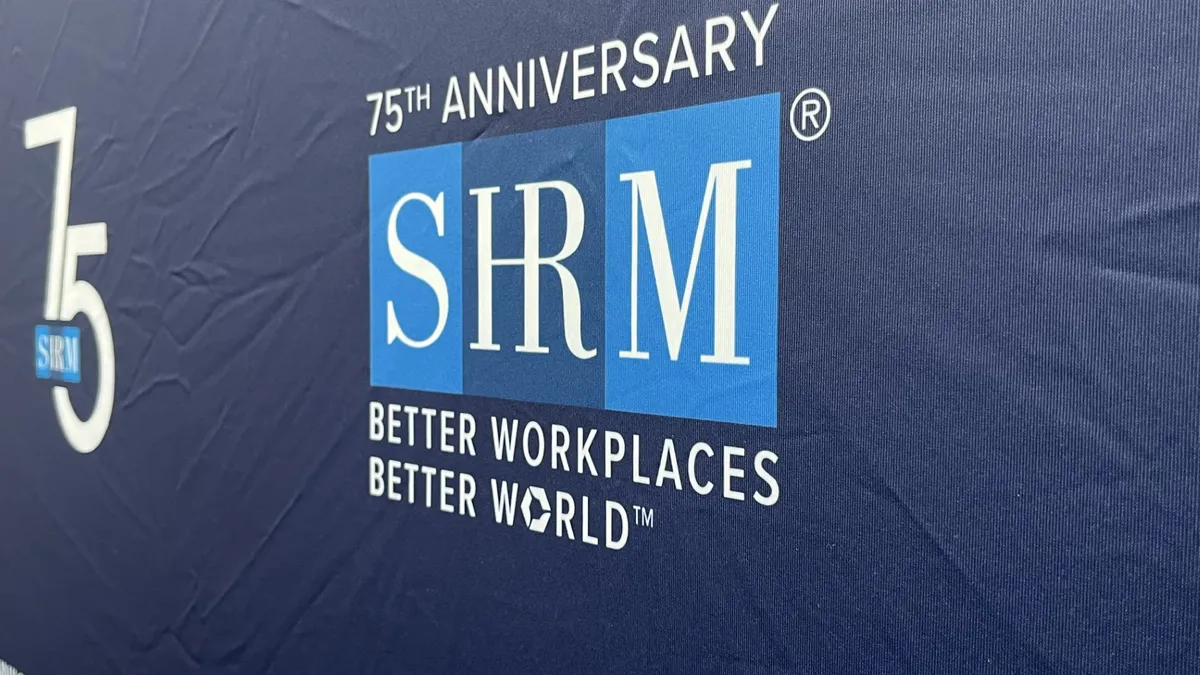CHICAGO — The world of interviewing has changed, Lauraine Bifulco, president of Vantaggio HR, told attendees at her session during the 2024 Society for Human Resource Management Annual Conference — and employers need to be more careful.
Something seemingly as common as cultural fit can be problematic, Bifulco said. Zoom and remote interviews also change the nature of this work, she added, but a good hiring decision can eliminate many legal risks, reduce costs, increase productivity and improve morale.
In other words, making a good hire keeps real money on the table, Bifulco noted; “At the end of the day, all these things translate into more dollars for your organization.”
But employers tend not to train hiring managers on how to interview. “If you have one takeaway from today,” Bifulco said, “I hope you go back to your company and say we have to do a better job in training our folks on the interviewing process.”
Questions about protected characteristics
HR should train hiring managers to avoid questions about protected characteristics. For employers that need a refresher, those can include factors such as: race or color; religion or creed; age; disability; sex, including pregnancy, childbirth, breastfeeding or related conditions; gender; sexual orientation; genetic information and nationality.
That list is far from exhaustive. California has protections for workers that associate with certain protected categories or are perceived as such. Height and weight have also emerged in Michigan and a few localities as protected categories.
“You cannot ask questions either directly or indirectly that touch upon someone’s protected status,” Bifulco said. This applies to everyone in an interviewing process, including supervisors, managers and recruiters.
Bona fide occupational qualifications, or BFOQs, do exist, which can allow employers to make a decision based on a protected category, though this is a narrow exemption, Bifulco noted. Security clearance may require U.S. citizenship for certain jobs, for example. But employers need to be very careful with BFOQs, she said, and employers should always seek legal counsel in such matters.
Some examples of questions employers absolutely should not ask, no matter how well-meaning, include:
- “Are you pregnant? Do you plan on having children soon?”
- “I love your accent. Where are you from?”
- “Are you married/single?”
These questions can feel perfectly human or normal to ask — but not in a work interview, Bifulco said. “We have to really be careful.”
Questions around pronouns can start to encroach on dangerous territory, as there is little need to know it for a business reason upfront; “I would probably avoid that in an interview process,” she said.
Disability can get tricky. “Are you able to perform the essential functions of the job with or without reasonable accommodation?” is essentially all you can ask, Bifulco said. It’s better to have the question on the job application in this case.
Some questions can be asked in a certain way, such as:
- “Have you used any other names in the past that we will need for reference or background check?”
- “Where do you currently live? How long have you lived at this location?”
- “Are you able to work this particular schedule?”
- “Can you present proof of your legal right to work in the U.S.?”
- “Tell us which schools you attended and which degrees you received.”
Always tie questions back to the business necessity, Bifulco said. Discern the business need and ask that upfront.
Volunteered information
If a candidate volunteers information related to a protected class, a hiring manager can make clear that they don’t make decisions based on age, race, religion or other protected factors, Bifulco said. Redirect the conversation if possible — and if they share it, do not write it down. “That will be exhibit A” if a company is sued for discrimination, she noted.
“We all have biases we are not 100% aware of,” Bifulco said. “This is why it is always best to have more than one person who does an interview.”
If a candidate shares that information on a resume, redact it before it is shared more widely with an organization, she recommended.
The question of pay
HR can also train managers on compliance with salary history and pay transparency laws. “Sometimes knowing the pay range someone is in can be a good indicator for where someone is in their career path,” Bifulco said — but “the reality is that there is a pay equity problem in this world.”
Numerous states and localities ban employers from asking about salary history, and the laws have varying scope, ostensibly to protect workers from employers perpetrating pay inequity even incidentally.
The issue of whether the law applies to the worker’s home state or the company’s home state in the case of remote work varies by law, as well, Bifulco said. Pay ranges are also required in some job advertisements depending on state or locality.
Ban the box
States have varying laws on felony convictions and criminal background, particularly ones that regulate when an employer can ask about criminal background. The lookback period can vary from state to state — and some states are particularly protective of how background check information can be used.
Every jurisdiction has its own way that an employer can word the question, Bifulco said. She heavily emphasized partnering with a third-party background check company to keep on top of relevant compliance requirements.
Bifulco also recommend HR pros audit job applications, job postings and even employee handbooks for these issues. Additionally, they should train all individuals that touch recruiting even the slightest bit, she said — otherwise, an organization could face big problems down the road.























